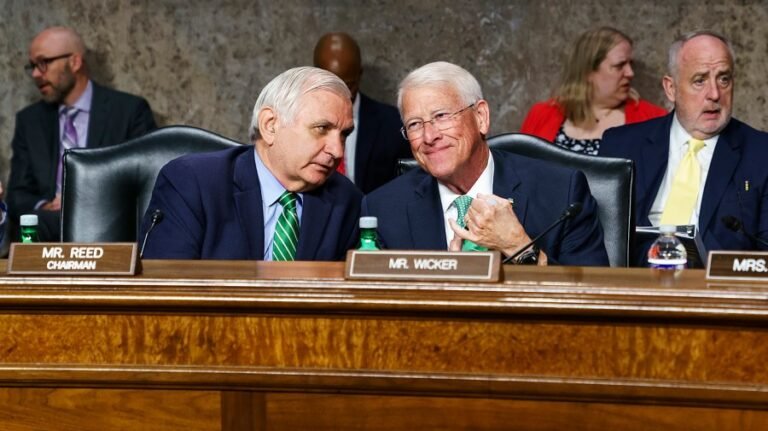
Sen. John Curtis (R-Utah) says he is a “firm no” on eliminating the Senate filibuster, which requires legislation to have 60 votes to advance, pushing back on President Trump’s call to deploy the “nuclear option” to change Senate rules and reopen the government.
“The filibuster forces us to find common ground in the Senate. Power changes hands, but principles shouldn’t. I’m a firm no on eliminating it,” Curtis wrote on X, the social media platform, responding to a Fox News story on Trump’s demand to get rid of the filibuster to fund government.
Senate Republicans have voted 13 times on a House-passed continuing resolution to reopen the government and keep it funded through Nov. 21.
Democrats have blocked the legislation every time by denying Senate Majority Leader John Thune (R-S.D.) the 60 votes he needs to advance the funding bill.
Thune pledged last year to preserve the Senate filibuster when he campaigned to become the Senate majority leader after Republicans wrested control of the chamber away from Democrats.
Members of his leadership team, including Sens. James Lankford (R-Okla.), the Senate Republican Policy Committee vice chairman, and John Cornyn (R-Texas), an advisor to Thune’s leadership team, earlier this month ruled out a potential change to the filibuster.
Some Republicans, however, predicted that Trump would ramp up pressure on the Senate GOP leadership to eliminate the filibuster if the shutdown dragged into November.
“I think the pressure from the White House will become pretty enormous,” one Republican senator, who requested anonymity, told The Hill last week, predicting that Trump would demand that GOP leaders blow up the filibuster to end the shutdown.
Thune told reporters last week that getting rid of the filibuster to reopen government would be a “bad idea.”
Senate Republicans control 53 seats and could change the chamber’s rules by voting to set a new precedent that the filibuster does not apply to government-funding legislation.
Changing the rules with a simple-majority vote instead of the 67 votes normally required under regular order is viewed as such a drastic step that it’s compared to detonating a nuclear weapon in a military conflict.
Doing so would radically change the Senate by opening the door to passing legislation with a simple majority instead of 60, which would allow any party that wins control of the White House and both chambers of Congress to rewrite the nation’s laws in a relatively short period of time.


